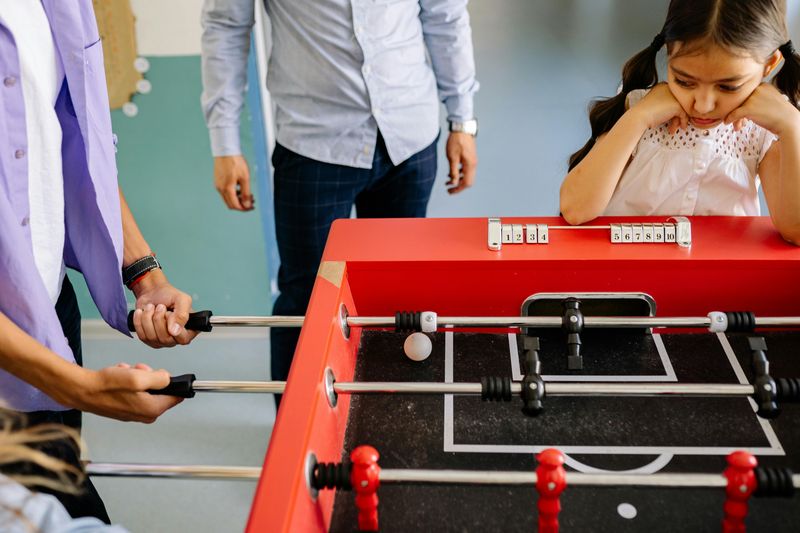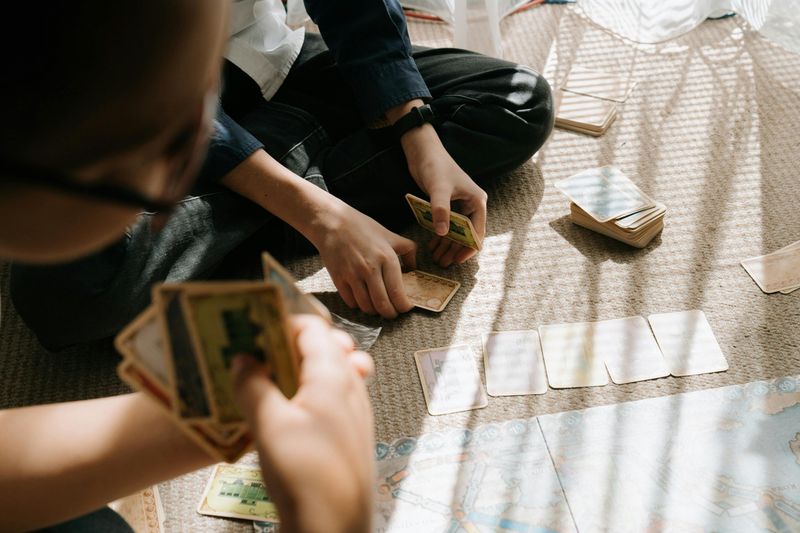12 Subtle Signs Your Child Might Be Too Competitive—And How to Help Them Chill

Not every child who loves to win is headed down a toxic path—but when that drive starts turning into meltdowns, bragging, or isolation, it might be time to take a closer look. Competition can be healthy, even empowering, but if your child’s self-worth hinges entirely on being the best, they may be teetering on a dangerous edge. From perfectionism to peer put-downs, some signs are subtle while others shout for attention. In this guide, we’ll explore 12 telltale behaviors that suggest your child might be too competitive—and most importantly, how to guide them back to balance and joy.
1. The Constant Comparator

Your once-confident child now measures every achievement against classmates or siblings. “Did I get more right than Jamie?” becomes their first question after every test. This measuring-stick mentality creates a rollercoaster of emotions tied completely to outperforming others.
To help, encourage personal improvement over peer comparison. “You improved your spelling score by three words this week!” focuses on their growth journey. Create non-competitive family activities where cooperation brings rewards.
Remind them regularly that everyone has different strengths, and point out the unique talents they possess that make them special—regardless of where they rank.
2. The Failure-Phobic Kid

Minor setbacks trigger disproportionate reactions in your child. A single wrong answer on homework might cause tears, while losing a game could ruin their entire day. This fear of failure often manifests as perfectionism or avoidance of challenging situations.
Help them reframe failure as feedback. Share stories of famous people who failed repeatedly before succeeding. Create a household “failure celebration” where family members share what they learned from mistakes that week.
Practice resilience through games with elements of chance, showing how losing gracefully is an important life skill. The goal isn’t to eliminate disappointment but to develop healthy responses to it.
3. The Lone Wolf Player

During group projects, your child takes over or works independently despite teacher instructions. They struggle to delegate tasks or trust others’ contributions. At home, even family game night becomes a solo mission rather than shared fun.
Foster teamwork by assigning household tasks requiring cooperation. Point out how different roles contribute to success in their favorite sports teams or movies.
Create opportunities for collaborative achievements where the end result couldn’t happen without everyone’s input. When they resist sharing control, acknowledge their strengths while gently highlighting how combining talents produces better outcomes than anyone could achieve alone.
4. The Poor Sport

Board games end with flipped tables. Sports matches conclude with blame-casting or excuses. Your child’s post-loss behavior has become so problematic that other parents or coaches have mentioned it.
Address this by establishing clear expectations before competitive activities. “Today we’re practicing being good sports no matter what happens.” Model gracious losing yourself, even when playing simple games at home.
Create a cool-down routine for after competitions—taking three deep breaths or squeezing a stress ball. Praise good sportsmanship more enthusiastically than you praise winning. Remember that children often mirror the competitive attitudes they see in parents and other adults.
5. The Competition Avoider

Despite natural talent, your child suddenly develops “stomachaches” before swim meets or refuses to join activities they previously enjoyed. This avoidance stems from fear that anything less than victory equals failure.
Reduce pressure by emphasizing participation and enjoyment. “I love watching you play” communicates more support than “I hope you win today.” Find role models who demonstrate love of process over outcomes.
Consider activities with less obvious competitive structures, like martial arts or theater, where personal growth is more emphasized than winning. Gradually reintroduce competitive activities with an agreement to focus on specific process goals rather than results.
6. The Victory Broadcaster

Your child announces every achievement with megaphone enthusiasm while diminishing others’ successes. “I got the highest score in class—Jamie only got second place because the teacher likes her.” This boasting often masks insecurity and creates social friction.
Teach the difference between pride and boasting through gentle correction. “It’s great you’re proud of your score. How might Jamie feel hearing you talk about her that way?”
Role-play humble responses to congratulations. Encourage them to notice and compliment others’ achievements, creating a habit of mutual celebration. Help them understand that secure people don’t need to diminish others to feel accomplished.
7. The Credit Hoarder

When the science project wins first place, your child quickly explains they did “all the important parts.” During team sports, they highlight personal statistics rather than team performance. This need for individual recognition undermines collaborative experiences.
Start conversations about synergy—how teams achieve more than individuals. Watch sports documentaries or movies featuring ensemble casts where success depends on everyone.
Create opportunities for them to experience the satisfaction of group achievement. Assign projects where everyone’s contribution is vital but no single person can claim primary credit. Praise them specifically when you see them acknowledging teammates or sharing recognition.
8. The Perfectionist Commander

Nothing is ever good enough—not their artwork, grades, or athletic performance. This perfectionism extends to judging siblings, friends, and even parents against impossible standards. They become miniature critics, creating tension in relationships.
Help them develop realistic expectations by discussing the concept of “good enough.” Not everything requires maximum effort or perfect execution. Share age-appropriate examples of your own imperfections and how you accept them.
Create opportunities for messy, process-focused activities without defined outcomes—finger painting, experimental cooking, or free play. Gradually introduce the idea that mistakes and imperfections often lead to unexpected discoveries and unique results that perfect execution never would.
9. The Performance-Pressured Child

Your child seems constantly “on stage,” unable to relax even during casual family time. They worry about how their hobbies, appearance, and achievements will be perceived. Spontaneity has been replaced by calculated efforts to impress.
Create safe spaces where no evaluation occurs. “For the next hour, we’re just having fun—no critiques, no corrections, no competition.” Model vulnerability by sharing your own struggles and imperfect moments.
Help them identify activities they enjoy regardless of outcome or audience approval. Celebrate effort, curiosity, and joy rather than results. Regularly remind them that your love is completely unconditional and not tied to their achievements or talents.
10. The Easily Discouraged Competitor

Minor setbacks trigger major emotional responses in your child. Not being chosen first for teams or receiving constructive feedback can lead to declarations like “I’m terrible at everything” or “Nobody likes me.” Their self-worth seems completely tied to external validation.
Build resilience through incremental challenges with high success probability. Create a family practice of sharing “failures and comebacks” at dinner, normalizing the ups and downs of learning.
Help them develop internal validation by asking “Are YOU proud of this work?” before offering your opinion. Teach positive self-talk through modeling and gentle prompting. Remember that children with perfectionist tendencies often need explicit permission to be imperfect.
11. The Friendship Saboteur

Your child’s competitive nature has begun affecting their social life. Playdates end in arguments, birthday parties become competitions, and peers have started avoiding interactions. Parents may hesitate to invite your child to gatherings due to their win-at-all-costs attitude.
Role-play social scenarios focusing on cooperation and taking turns. Discuss the difference between competing in structured activities versus turning everything into a competition.
Arrange playdates centered around collaborative activities where success requires teamwork. When friendship conflicts arise from competitiveness, help them understand the other child’s perspective. Social skills groups can provide structured practice in balancing healthy competition with relationship building.
12. The Rule-Bender

You’ve caught your child moving game pieces when no one’s looking or exaggerating accomplishments to gain advantage. This win-at-all-costs mentality reveals they value outcomes over integrity, a concerning pattern for future development.
Address this directly but privately. “I noticed you changed the score. Winning by cheating isn’t really winning at all.” Discuss admired athletes or characters who demonstrate fair play even when it costs them victory.
Create family values statements emphasizing honesty above achievement. When you observe them choosing integrity over advantage, offer specific praise. Remember that children often cheat not from malice but from intense pressure to succeed—pressure that may be coming from external sources or their own expectations.

Comments
Loading…